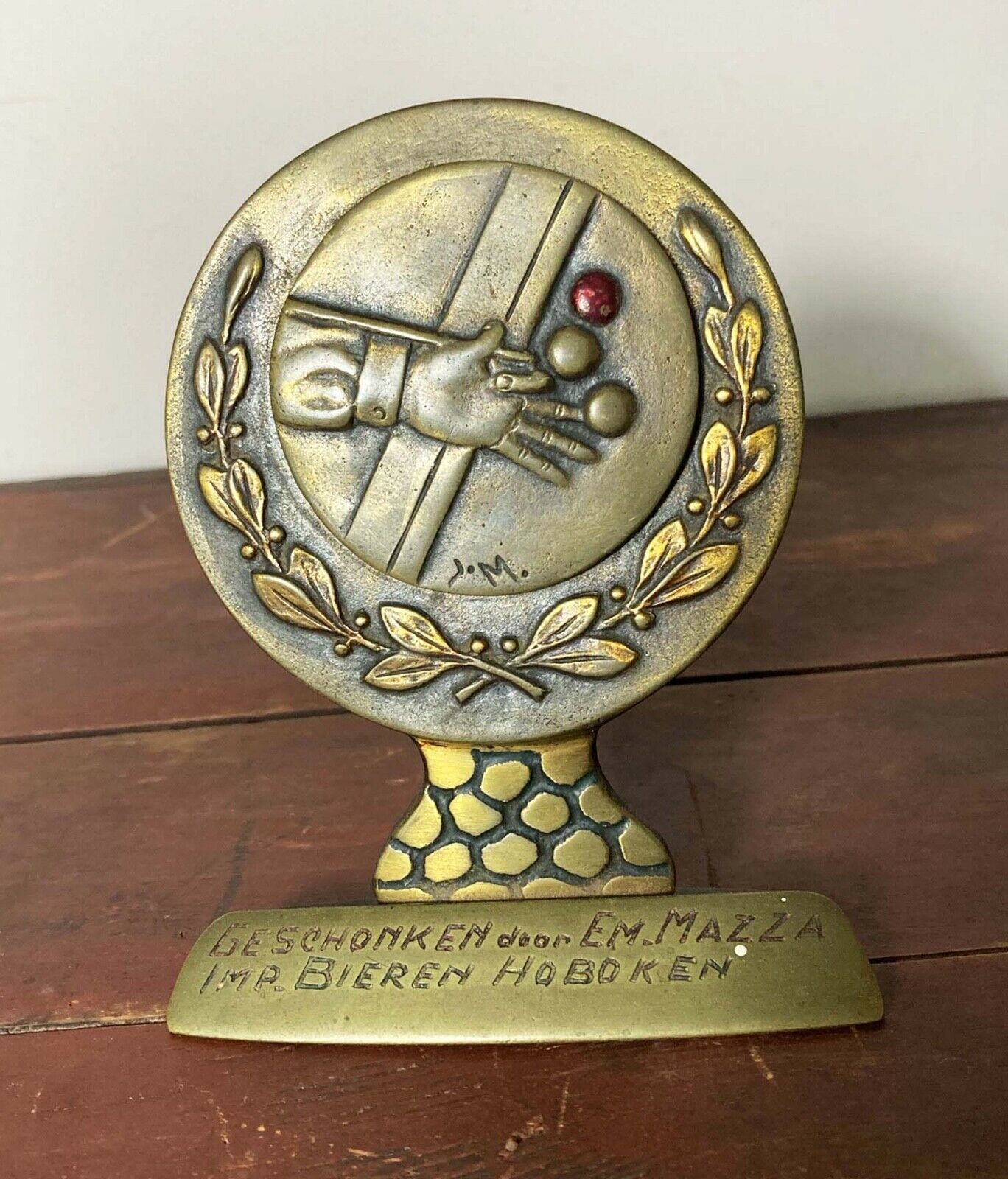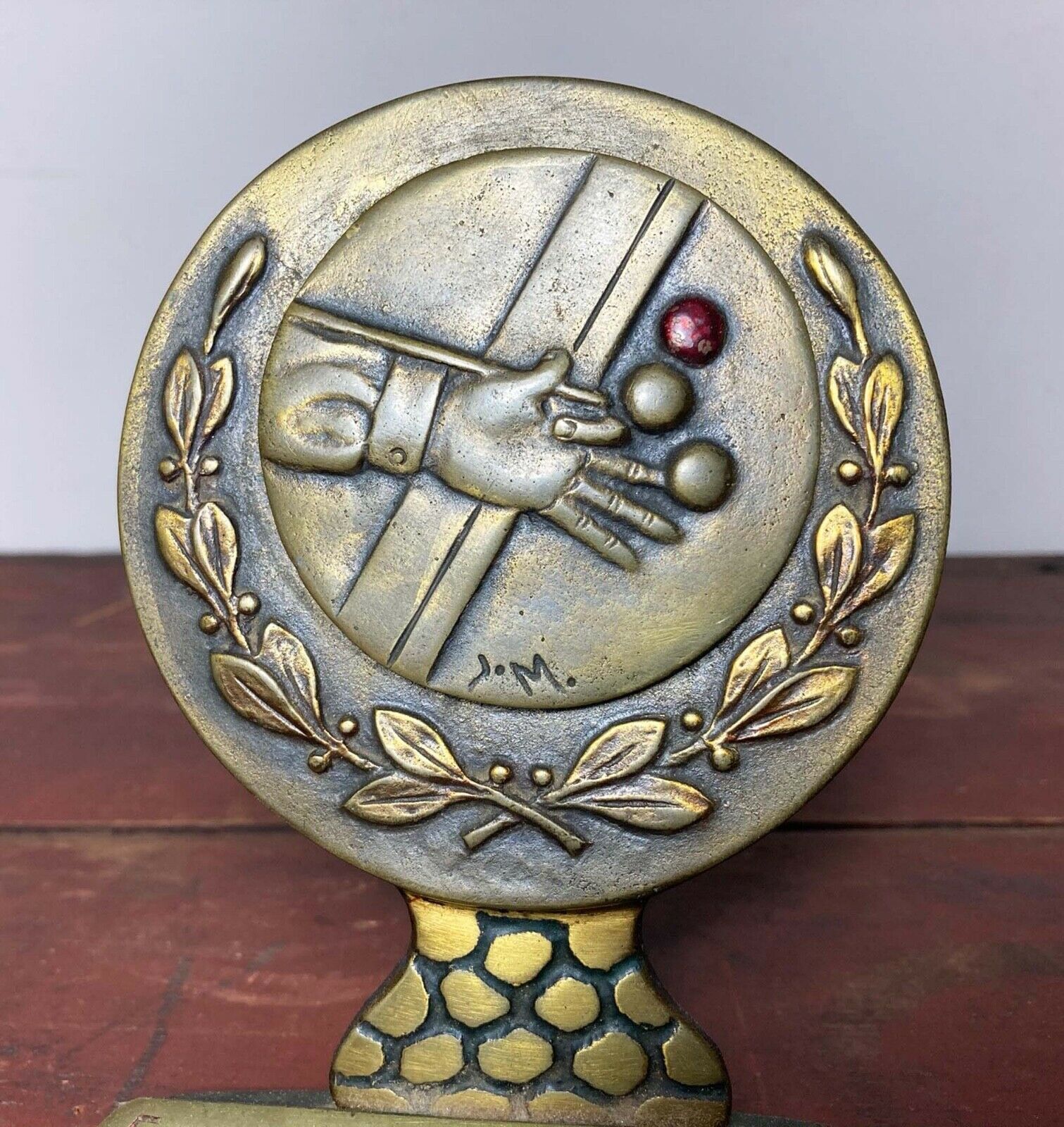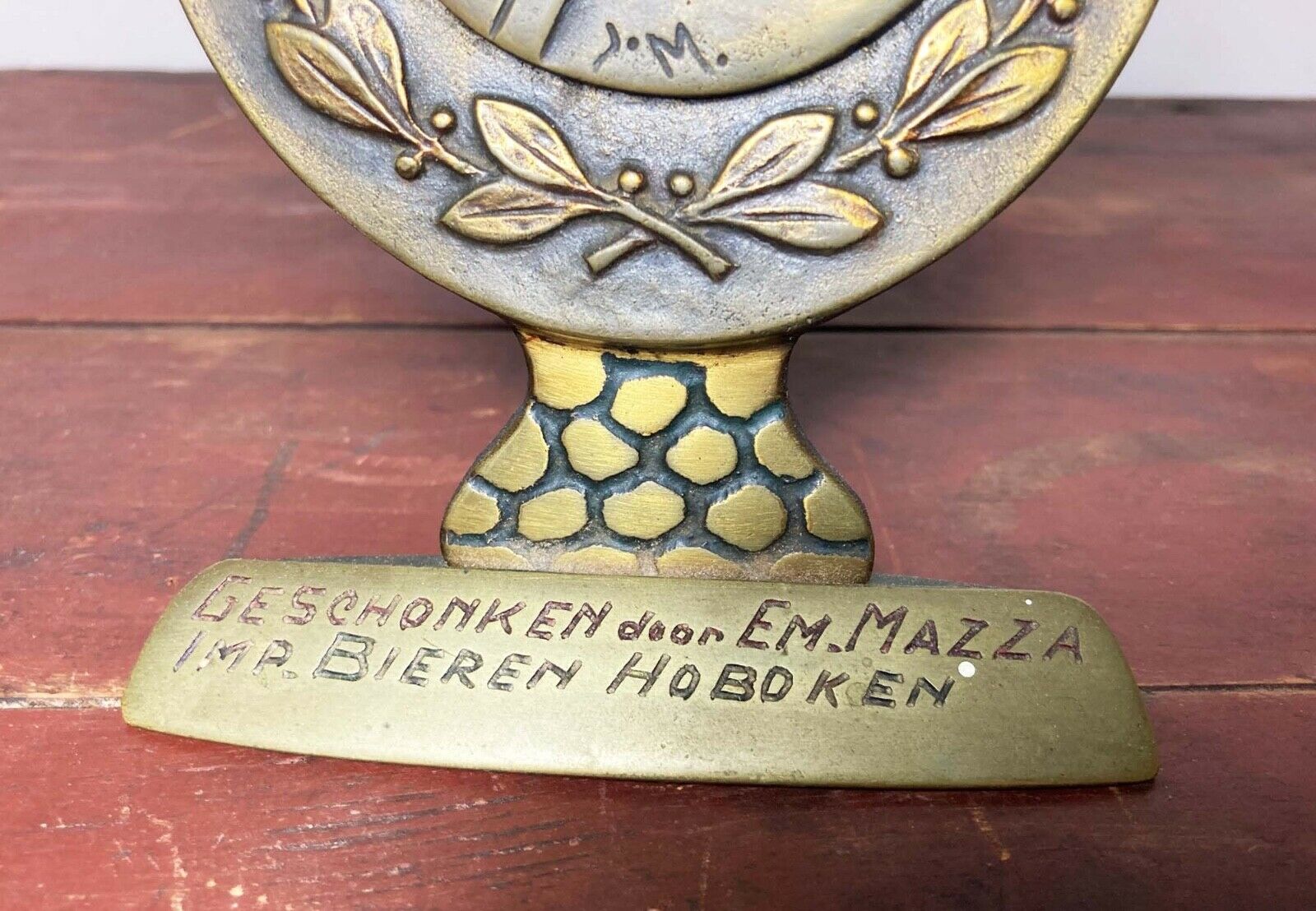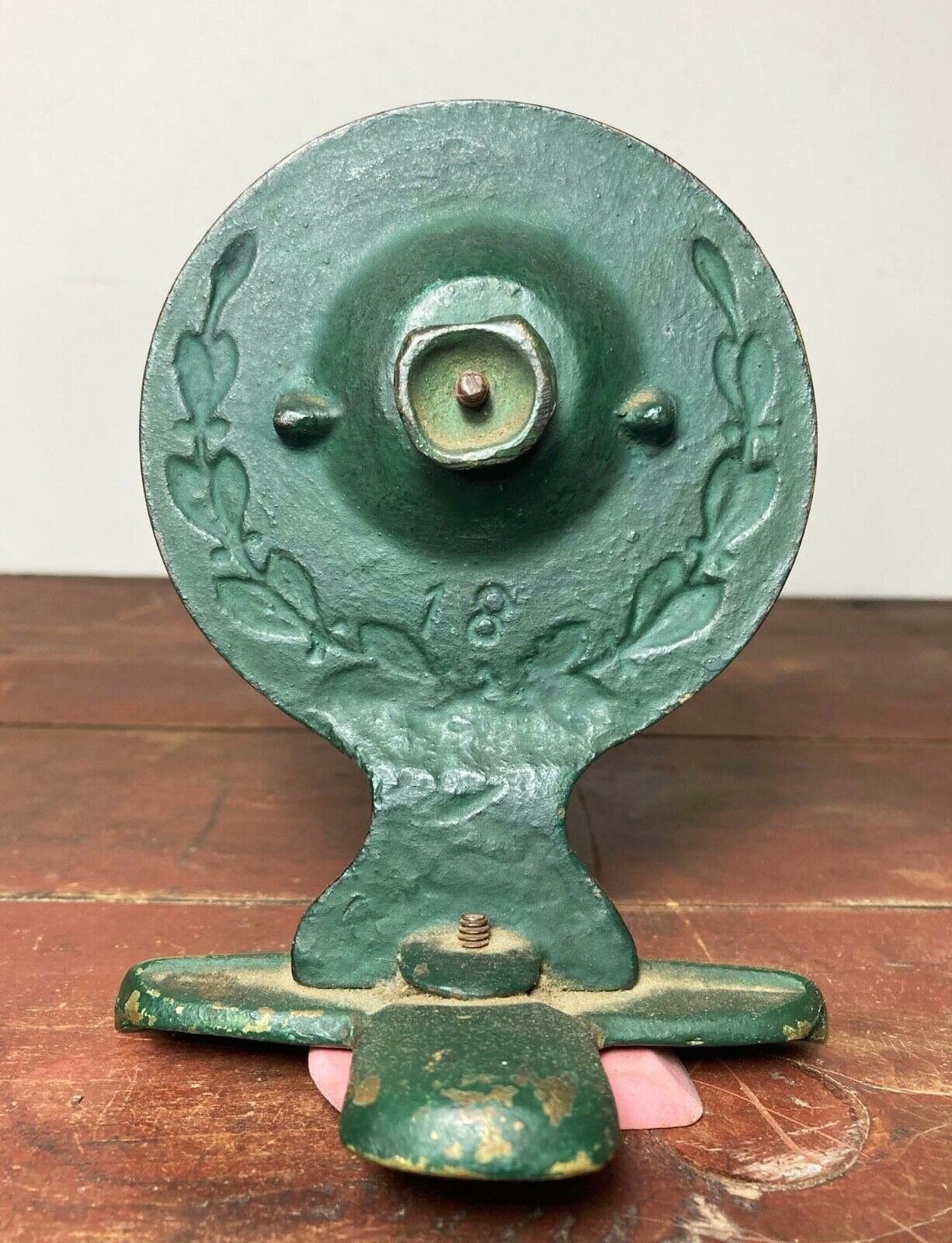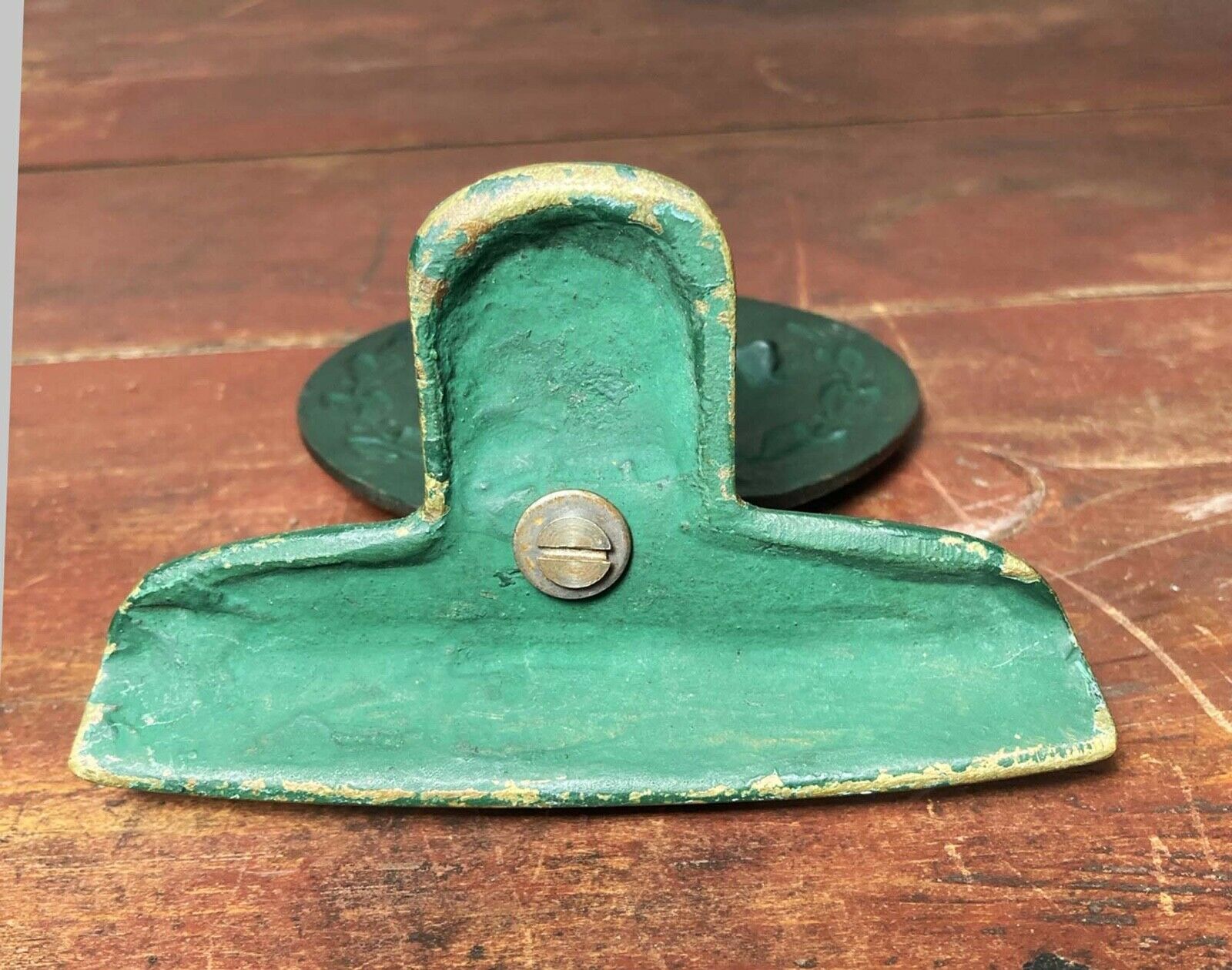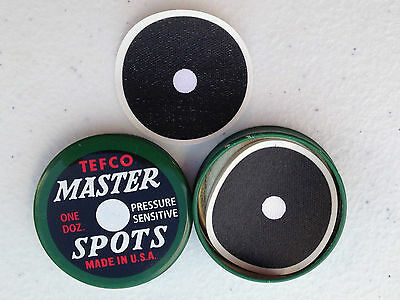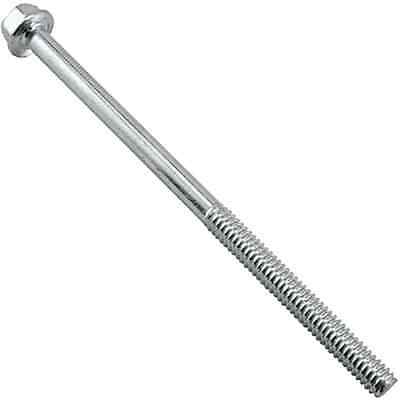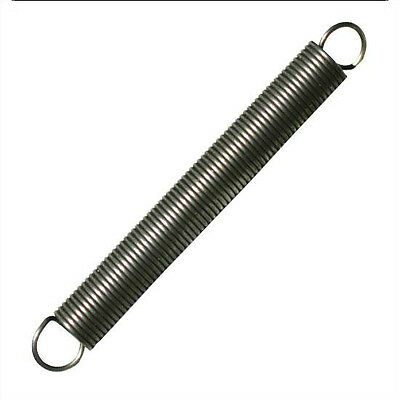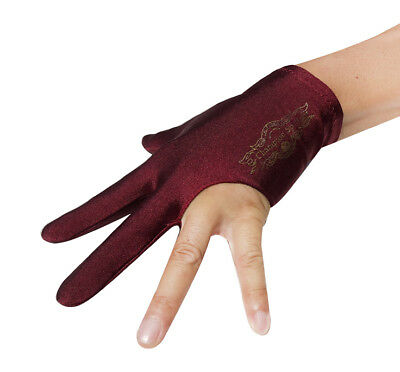-40%
Antique Vintage Brass Billiard Pool Trophy
$ 132
- Description
- Size Guide
Description
This rare, attractive, antique pool or billiard trophy is solid brass (or nonferrous, in any regard), assembled from 3 separate pieces, and stands 6" tall.The design and craftsmanship of the casting is superb, featuring a hand holding the business end of a cue stick about to strike the cue ball into a blood red ball. This red ball is the only thing on the front of the trophy that is in color rather than naturally patinated brass. This round vignette is flanked by two branches with leaves and berries. The image is signed "J.M." by the artist.
It reads, in Dutch: Geschonkn doo Em. Mazza imp. Bieren Hoboken, which translates into: Donated by Em. Mazza imp. Hoboken Beers.
The back and underside is painted green and includes the number 18 cast into it.
Research has shown that late 19th century Hoboken, NJ, especially among recent Dutch settlers was indeed an early hub of brewing. This article is from Hobokengirl(dot)com:
The First Brews
In an article published in January 1896, Hoboken was dubbed by a local newspaper as “the Place Where Beer Was Naturalized to Jerseymen.” According to Robert Feldra, the entire square mile was once a farm, complete with a small house built by the governor of what was then New Netherland, fenced in and bordered by water and the Palisades — the perfect place to make beer. According to Lew Bryson and Mark Haynie in their book New Jersey Breweries, the first brewery in New Jersey was set up in Hoboken by a Dutch settler and his family way back in 1641, making the history of beer older than the actual state itself.
Brewmaster Aert Teunissen Van Putten leased the entirety of the Hoboken area, worked the soil, and built a small brewhouse to accompany the home that then-Governor Kieft built for him, according to Feldra. Not a lot is known about Van Putten, except that he was born in the Netherlands in 1612, according to Ancestry.com, and married Susanna Jans van Schuenburgh, who was also Dutch. They relocated to Hoboken with their three children and built the first home here in 1640 and set up a small brewery to sell beer to settlers, according to an archived article at the Hoboken Historical Museum. But his novel idea came with unfortunate circumstances. According to Michael Pellegrino, the Lenni Lenape Indians, the original settlers of the land, weren’t too thrilled with his brewery being set up in that area of Hoboken. In frustration, they burned most of his farmland to the ground and killed Van Putten.
The Van Putten family’s tragedy didn’t stop beer drinkers and brewmasters, though. Eventually, the next wave of Dutch immigrants made beer gardens popular in the area, and, by 1879, John C. Ensslin writes that there were 58 commercial breweries in the state of New Jersey. They began to pop up anywhere that was close enough to freshwater and connected to big towns by major roadways, and sent out glass glasses and bottles to restaurants to be used. When they were empty, they were sent back to breweries to be refilled.
The Impact of Prohibition
But then, prohibition happened to New Jersey meaning alcohol became illegal across the U.S, and many establishments that made and sold alcohol locked their doors to the public. The closing of many of these breweries proved fatal to their businesses, forcing them to close. Of course, organized crime didn’t let a law stop them, and mobsters began to bootleg alcohol, finding creative ways to move alcohol around and across the state.
When prohibition ended in 1933, the brewery scene in New Jersey found itself irreparably damaged. The Anheuser-Busch brewery opened a plant in Newark in 1951, after most relocated to the Midwest, and that brewery is, according to John C. Ensslin, the only major brewery still operating in New Jersey.
But, that doesn’t mean the industry disappeared from Hudson County forever. There are many microbreweries in the area. Dave Hoffman led the way and created New Jersey’s first microbrewery in Cranford when he opened the Climax Brewing Company in Roselle Park in February 1996. An insurgence followed, and today there are over 100 microbreweries in the state that make up about 5% of New Jersey’s total beer. Hudson County is home to Hoboken Brewing, 902 Brewing Co., NJ Beer Co., Departed Soles Brewing Company, and more local treasures keeping the state’s brewing history alive, and many restaurants and bars around town offer locally brewed options. Clearly, Hoboken still loves beer, and Aert Teunissen Van Putten would be proud.
#pool #billiard #8ball #9ball #snooker #rackem #break #brunswick #massi #williemosconi #minnesotafats #jersey
